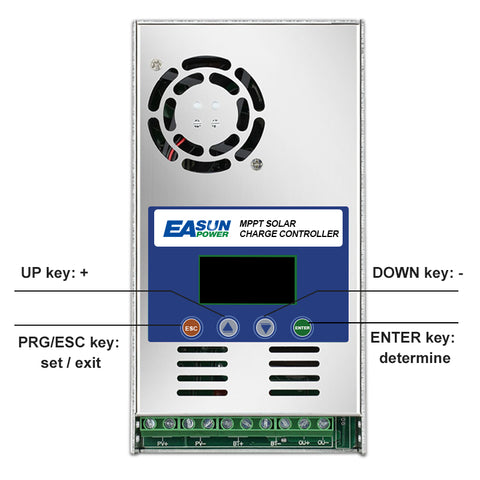settembre 26, 2023
meijianbin
Why do you need a MPPT charge controller?
1. Maximizing Solar Energy with MPPT Charge Controllers
In the quest for cleaner and more sustainable energy solutions, solar power has emerged as a front-runner. Harnessing energy from the sun's rays holds immense potential to reduce our reliance on non-renewable resources and mitigate environmental impacts. However, effectively harnessing solar energy is not as straightforward as it may seem. One critical component that plays a pivotal role in maximizing solar energy utilization is the Maximum Power Point Tracking (MPPT) charge controller. This article delves into the reasons why an MPPT charge controller is indispensable for optimizing solar energy systems.
2. Understanding Solar Energy Conversion
Solar panels are designed to capture sunlight and convert it into electricity. However, the amount of power generated by a solar panel is not constant and is heavily influenced by various factors such as sunlight intensity, temperature, and shading. Solar panels have a specific operating point at which they produce the maximum amount of power, known as the Maximum Power Point (MPP).
Traditional charge controllers, such as Pulse Width Modulation (PWM) controllers, regulate the flow of current from the solar panel to the battery bank. While they are effective to some extent, they lack the sophistication required to ensure that the solar panel operates consistently at its MPP, especially under varying conditions.

3. The Role of MPPT Charge Controllers
This is where MPPT charge controllers come into play. MPPT charge controllers are advanced electronic devices designed to maximize the efficiency of solar energy conversion. They achieve this by continuously tracking the MPP of the solar panel and adjusting the operating conditions to maintain that point. Here's why MPPT charge controllers are essential:
1. Improved Energy Harvesting Efficiency:
MPPT charge controllers can extract significantly more energy from a solar panel compared to traditional PWM controllers. This increase in efficiency can be attributed to their ability to adapt to changing conditions and maintain the panel's operation at the MPP. This ensures that the maximum available power is consistently captured, leading to higher energy yields.
2. Accommodating Variable Conditions:
Solar panels are subject to fluctuations in sunlight intensity due to factors such as cloud cover, shading, and solar angle changes throughout the day. MPPT charge controllers are equipped with advanced algorithms that can rapidly respond to these variations, ensuring that the solar panel operates at its optimal point, even as conditions change.
3. Voltage Flexibility:
One significant advantage of MPPT charge controllers is their ability to step up or step down the voltage output from the solar panels to match the voltage requirements of the battery bank. This enables efficient charging of batteries with varying voltage levels, optimizing energy transfer and storage.
4. Battery Protection:
MPPT charge controllers are equipped with features that protect the batteries from overcharging and excessive discharge. By regulating the charging process more precisely, they prolong the battery lifespan and improve the overall reliability of the solar energy system.
5. Long-Term Cost Savings:
While MPPT charge controllers may have a higher upfront cost compared to PWM controllers, their ability to harvest more energy translates to higher overall energy savings over time. The increased efficiency leads to quicker payback periods and a better return on investment for solar energy installations.

In the pursuit of maximizing solar energy utilization, MPPT charge controllers emerge as an indispensable tool. Their ability to track the Maximum Power Point of solar panels, adapt to changing conditions, and optimize energy conversion efficiency sets them apart from traditional charge controllers. With the rising importance of renewable energy sources and the need for more sustainable power solutions, MPPT charge controllers play a crucial role in harnessing the full potential of solar power. As technology continues to evolve, we can expect further advancements in MPPT charge controller design, leading to even greater energy efficiency and environmental benefits.




Lascia un commento